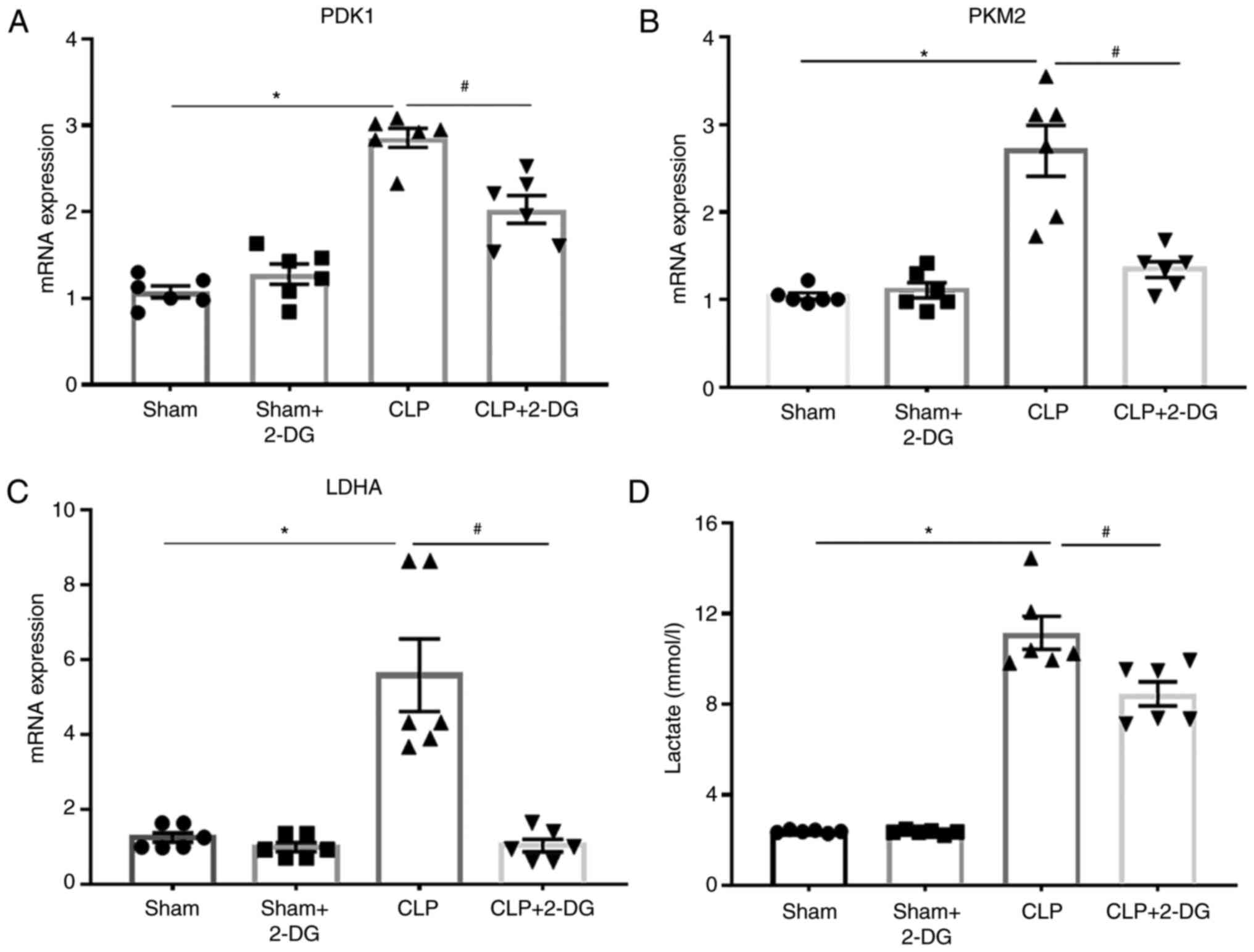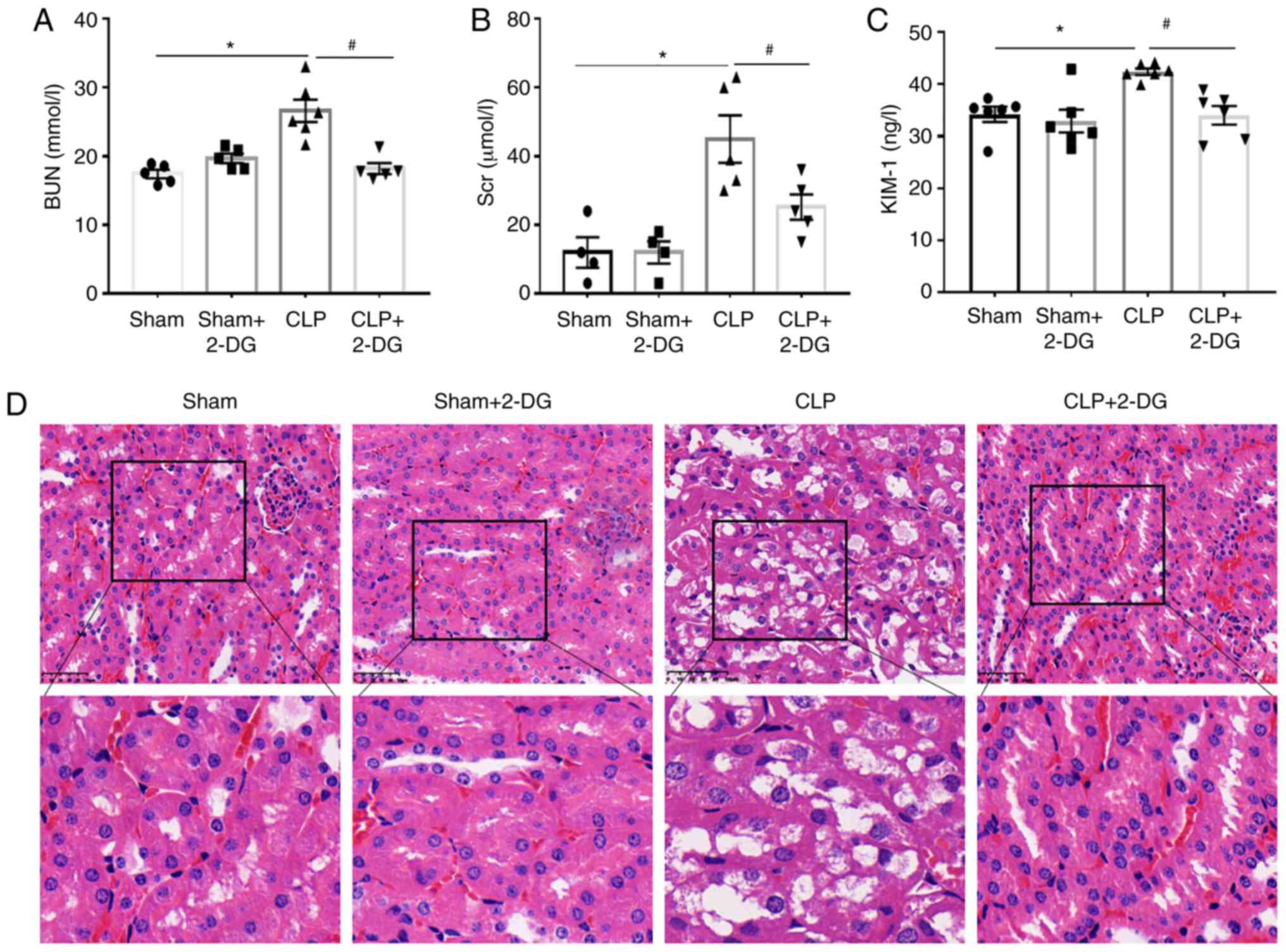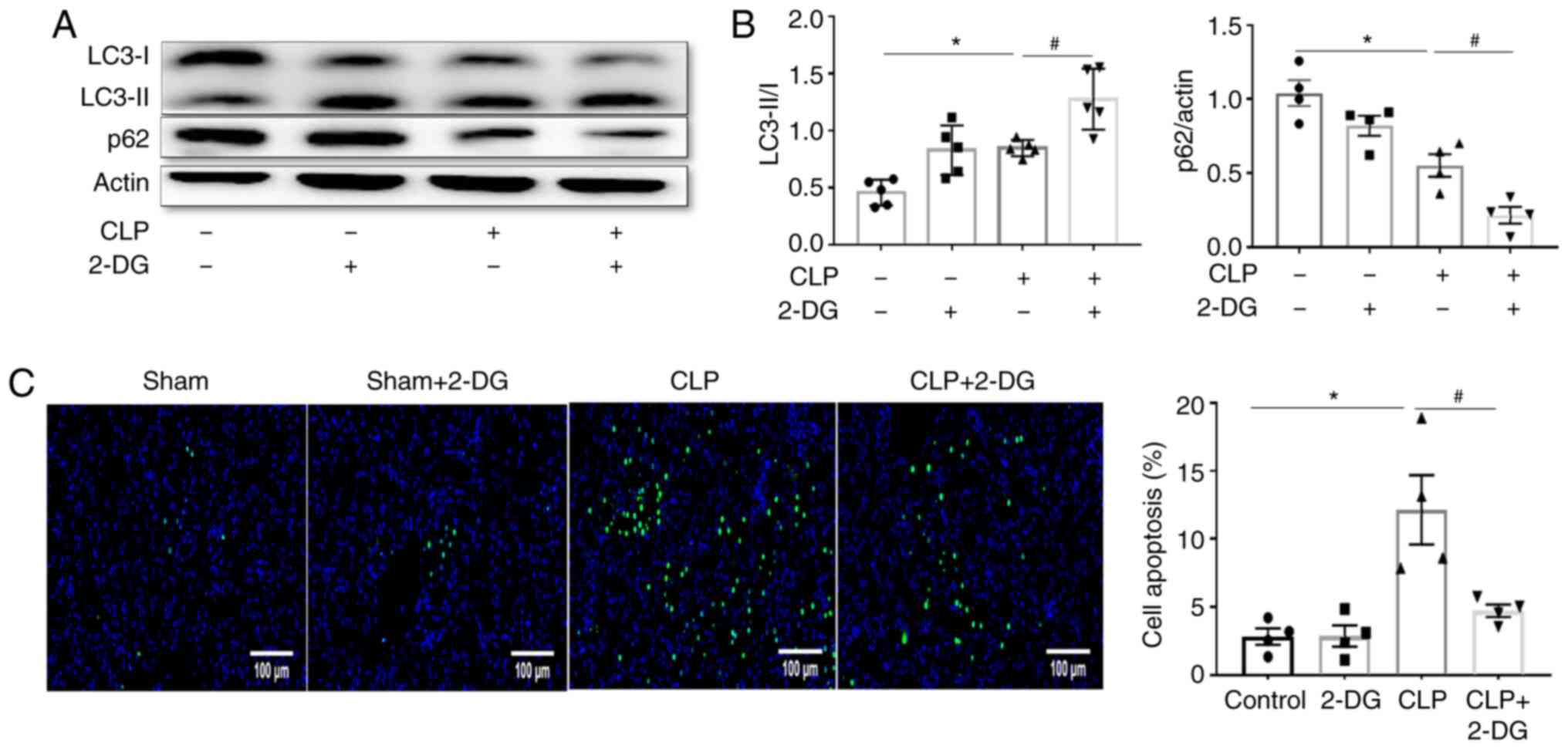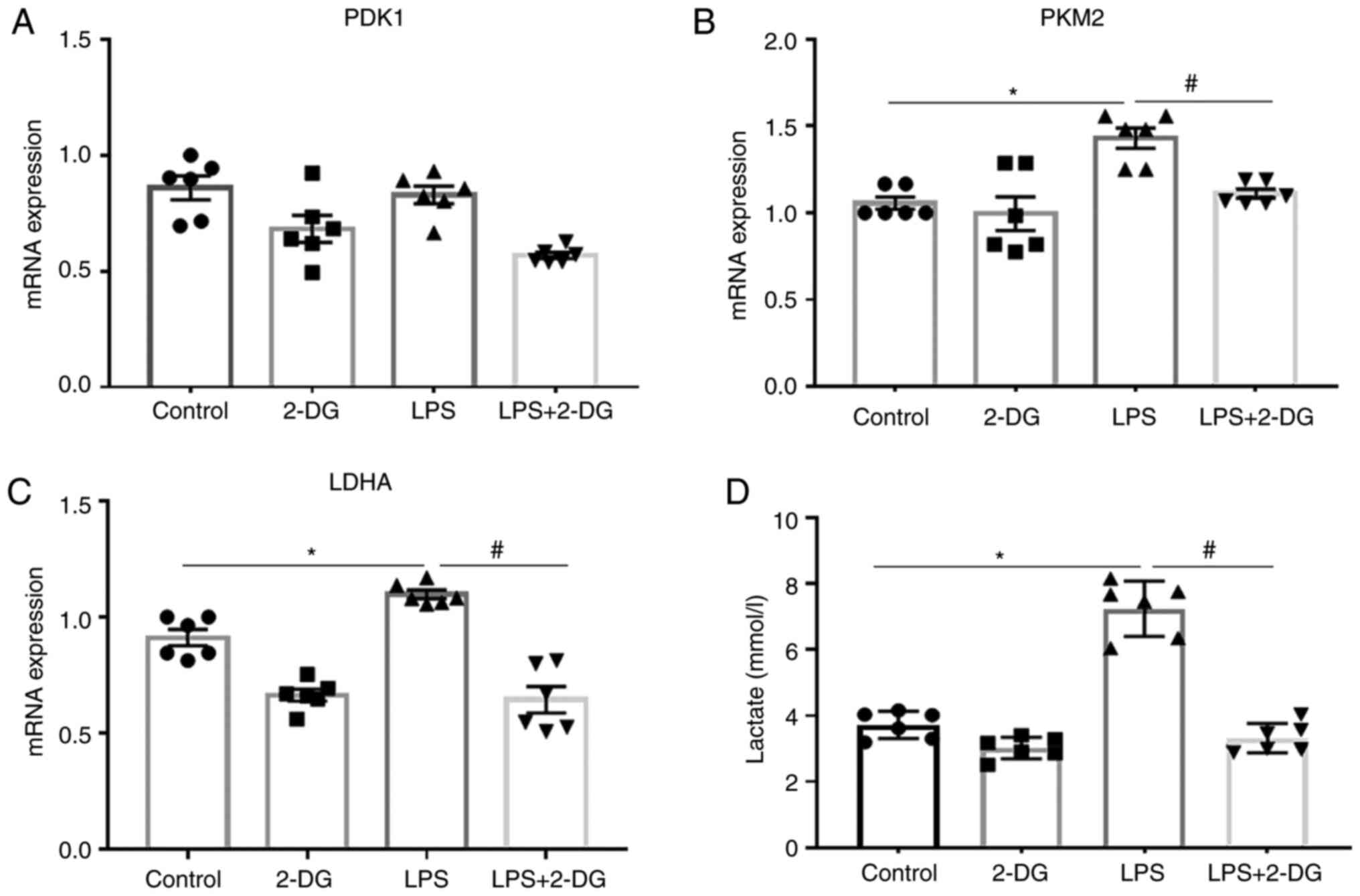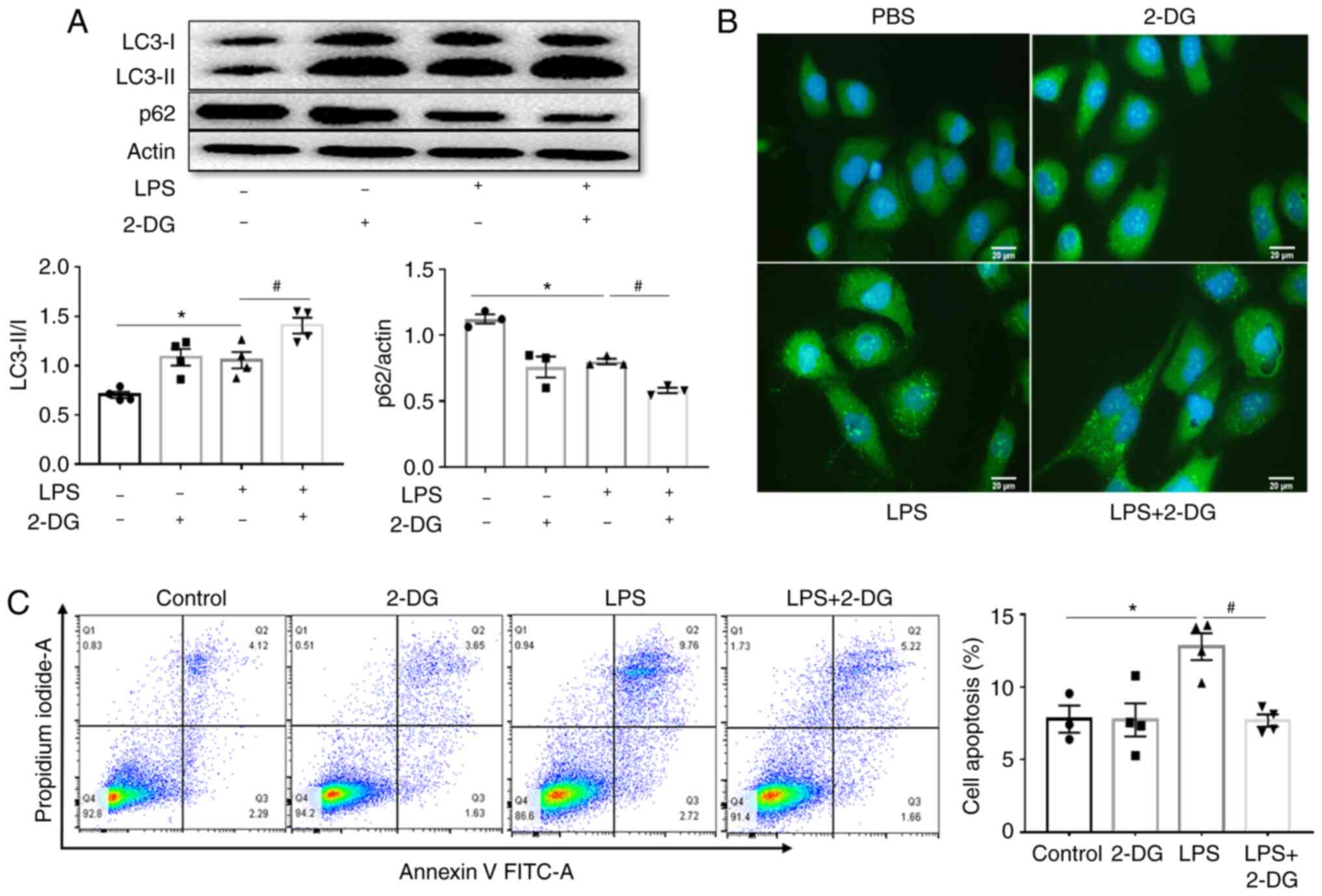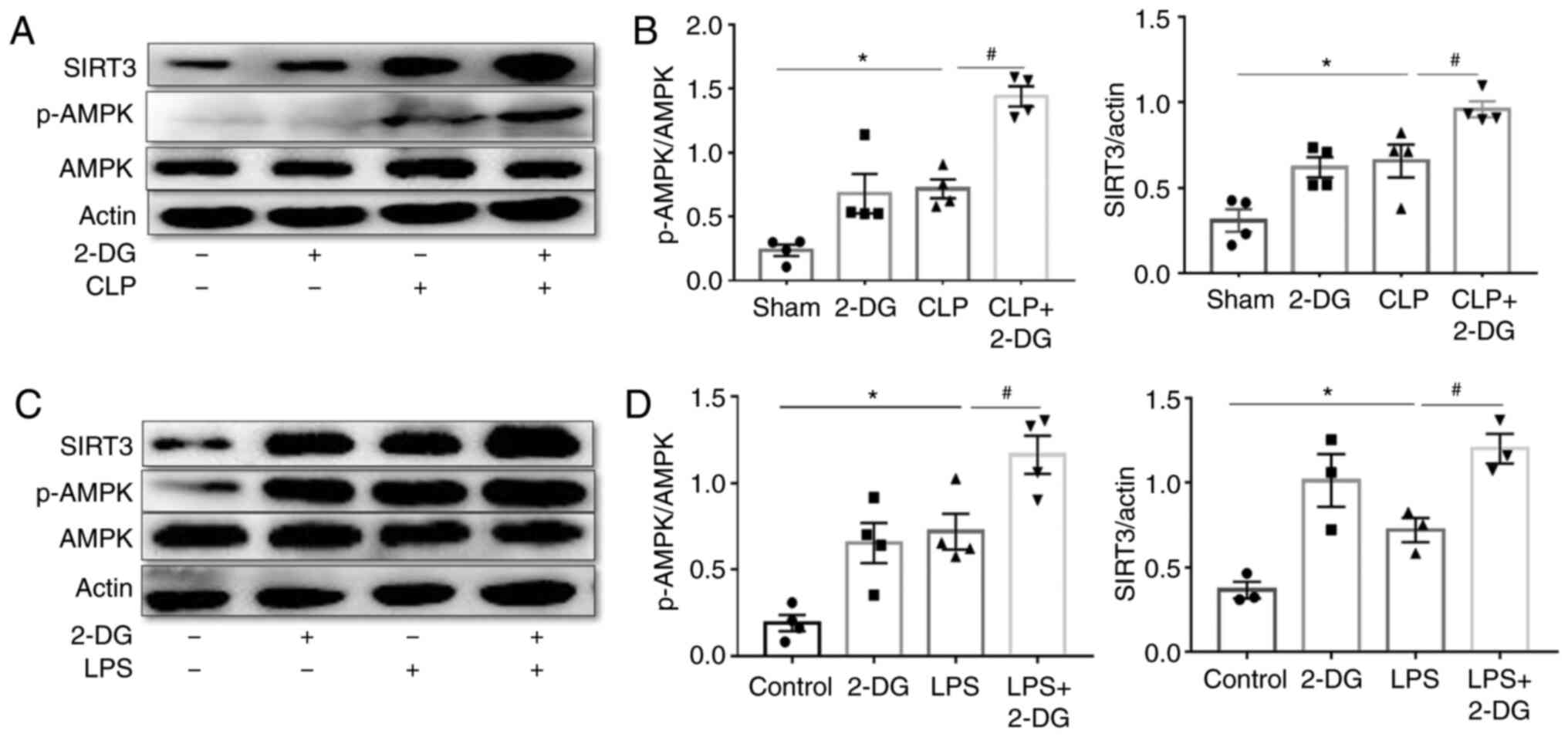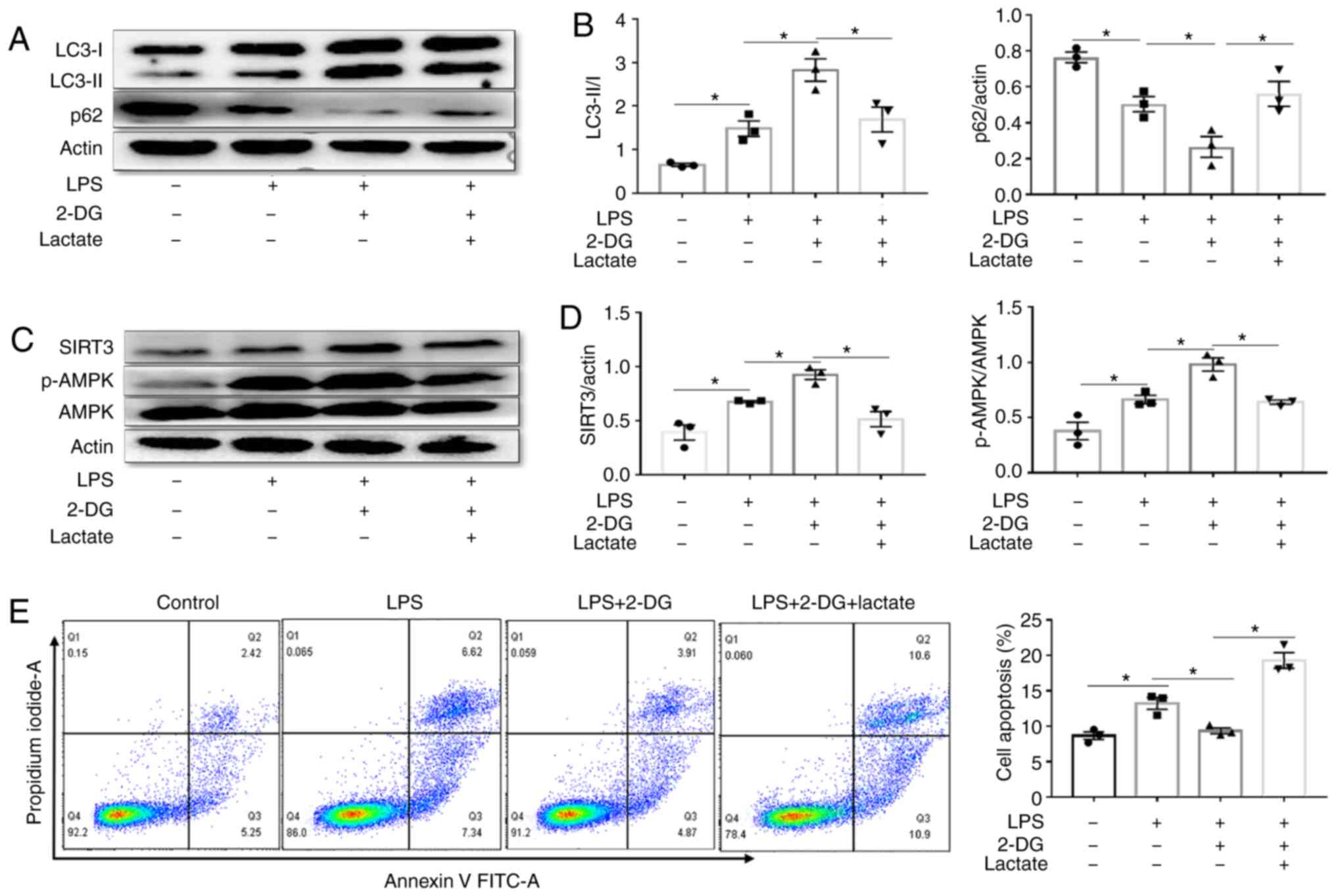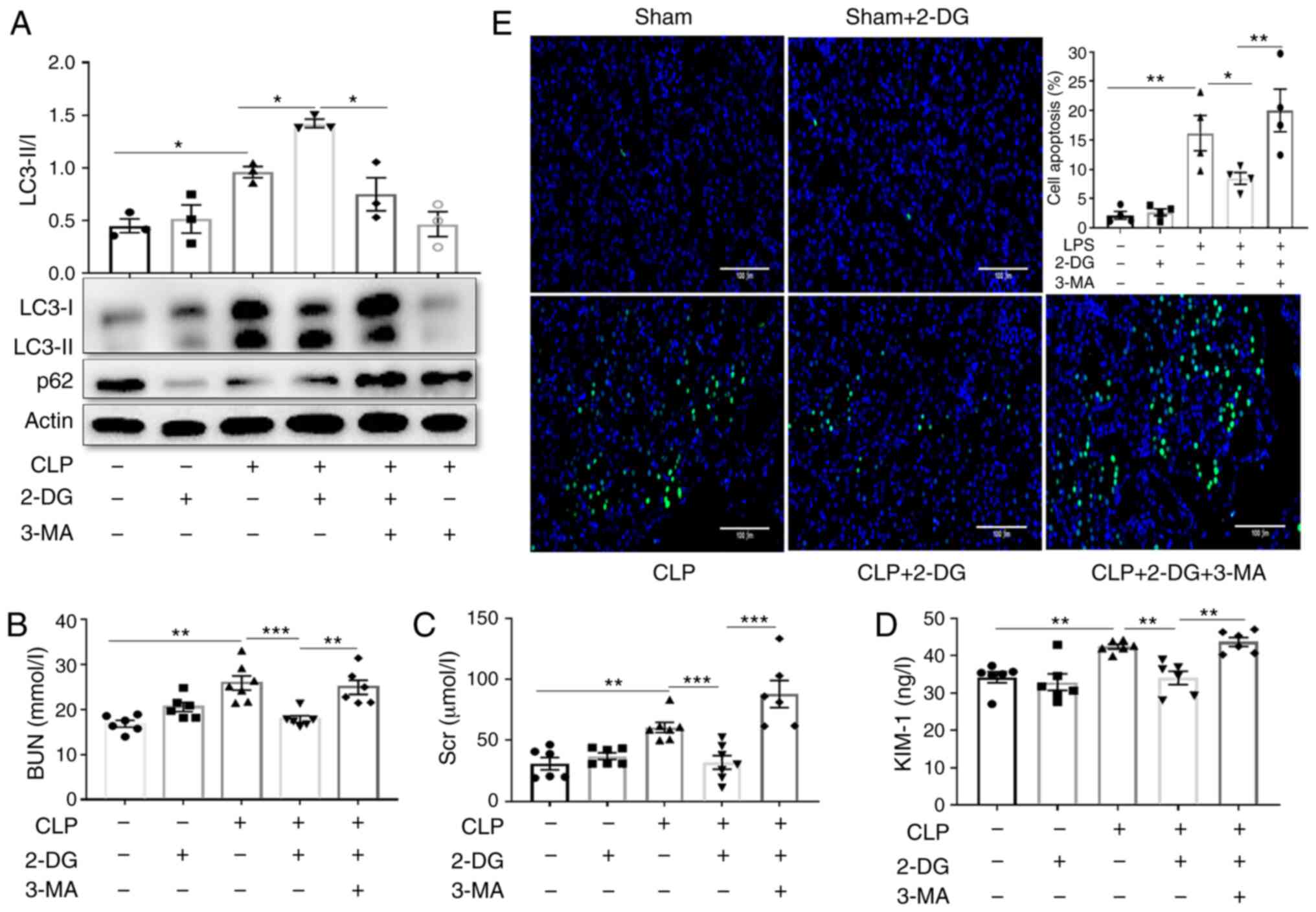|
1
|
Uchino S, Kellum JA, Bellomo R, Doig GS,
Morimatsu H, Morgera S, Schetz M, Tan I, Bouman C, Macedo E, et al:
Acute renal failure in critically ill patients: A multinational,
multicenter study. JAMA. 294:813–818. 2005. View Article : Google Scholar : PubMed/NCBI
|
|
2
|
Murugan R and Kellum JA: Acute kidney
injury: What's the prognosis? Nat Rev Nephrol. 7:209–217. 2011.
View Article : Google Scholar : PubMed/NCBI
|
|
3
|
Cruz MG, Dantas JG, Levi TM, Rocha Mde S,
de Souza SP, Boa-Sorte N, de Moura CG and Cruz CM: Septic versus
non-septic acute kidney injury in critically ill patients:
Characteristics and clinical outcomes. Rev Bras Ter Intensiva.
26:384–391. 2014.In En, Portuguese. View Article : Google Scholar
|
|
4
|
Mehta RL, Bouchard J, Soroko SB, Ikizler
TA, Paganini EP, Chertow GM and Himmelfarb J; Program to Improve
Care in Acute Renal Disease (PICARD) Study Group: Sepsis as a cause
and consequence of acute kidney injury: Program to improve care in
acute renal disease. Intensive Care Med. 37:241–248. 2011.
View Article : Google Scholar :
|
|
5
|
Kaushal GP and Shah SV: Autophagy in acute
kidney injury. Kidney Int. 89:779–791. 2016. View Article : Google Scholar : PubMed/NCBI
|
|
6
|
Duann P, Lianos EA, Ma J and Lin PH:
Autophagy, innate immunity and tissue repair in acute kidney
injury. Int J Mol Sci. 17:6622016. View Article : Google Scholar :
|
|
7
|
Jiang M, Wei Q, Dong G, Komatsu M, Su Y
and Dong Z: Autophagy in proximal tubules protects against acute
kidney injury. Kidney Int. 82:1271–1283. 2012. View Article : Google Scholar : PubMed/NCBI
|
|
8
|
Li T, Liu Y, Zhao J, Miao S, Xu Y, Liu K,
Liu M, Wang G and Xiao X: Aggravation of acute kidney injury by
mPGES-2 down regulation is associated with autophagy inhibition and
enhanced apoptosis. Sci Rep. 7:102472017. View Article : Google Scholar : PubMed/NCBI
|
|
9
|
Liu S, Hartleben B, Kretz O, Wiech T,
Igarashi P, Mizushima N, Walz G and Huber TB: Autophagy plays a
critical role in kidney tubule maintenance, aging and
ischemia-reperfusion injury. Autophagy. 8:826–837. 2012. View Article : Google Scholar : PubMed/NCBI
|
|
10
|
Zager RA: 'Biologic memory' in response to
acute kidney injury: Cytoresistance, toll-like receptor
hyper-responsiveness and the onset of progressive renal disease.
Nephrol Dial Transplant. 28:1985–1993. 2013. View Article : Google Scholar : PubMed/NCBI
|
|
11
|
Gomez H, Kellum JA and Ronco C: Metabolic
reprogramming and tolerance during sepsis-induced AKI. Nat Rev
Nephrol. 13:143–151. 2017. View Article : Google Scholar : PubMed/NCBI
|
|
12
|
Smith JA, Stallons LJ and Schnellmann RG:
Renal cortical hexokinase and pentose phosphate pathway activation
through the EGFR/Akt signaling pathway in endotoxin-induced acute
kidney injury. Am J Physiol Renal Physiol. 307:F435–F444. 2014.
View Article : Google Scholar : PubMed/NCBI
|
|
13
|
Waltz P, Carchman E, Gomez H and
Zuckerbraun B: Sepsis results in an altered renal metabolic and
osmolyte profile. J Surg Res. 202:8–12. 2016. View Article : Google Scholar : PubMed/NCBI
|
|
14
|
Yang J, Zhou R and Ma Z: Autophagy and
energy metabolism. Adv Exp Med Biol. 1206:329–357. 2019. View Article : Google Scholar : PubMed/NCBI
|
|
15
|
Chu B, Wang J, Wang Y and Yang G:
Knockdown of PKM2 induces apoptosis and autophagy in human A549
alveolar adenocarcinoma cells. Mol Med Rep. 12:4358–4363. 2015.
View Article : Google Scholar : PubMed/NCBI
|
|
16
|
Tan C, Gu J, Chen H, Li T, Deng H, Liu K,
Liu M, Tan S, Xiao Z, Zhang H and Xiao X: Inhibition of aerobic
glycolysis promotes neutrophil to influx to the infectious site via
CXCR2 in sepsis. Shock. 53:114–123. 2020. View Article : Google Scholar
|
|
17
|
Hubbard WJ, Choudhry M, Schwacha MG, Kerby
JD, Rue LW III, Bland KI and Chaudry IH: Cecal ligation and
puncture. Shock. 24(Suppl 1): S52–S57. 2005. View Article : Google Scholar
|
|
18
|
Zheng Z, Ma H, Zhang X, Tu F, Wang X, Ha
T, Fan M, Liu L, Xu J, Yu K, et al: Enhanced glycolytic metabolism
contributes to cardiac dysfunction in polymicrobial sepsis. J
Infect Dis. 215:1396–1406. 2017. View Article : Google Scholar : PubMed/NCBI
|
|
19
|
Zhao W, Zhang L, Chen R, Lu H, Sui M, Zhu
Y and Zeng L: SIRT3 protects against acute kidney injury via
AMPK/mTOR-regulated autophagy. Front Physiol. 9:15262018.
View Article : Google Scholar : PubMed/NCBI
|
|
20
|
Livak KJ and Schmittgen TD: Analysis of
relative gene expression data using real-time quantitative PCR and
the 2(-Delta Delta C(T)) method. Methods. 25:402–408. 2001.
View Article : Google Scholar
|
|
21
|
Mariño G, Niso-Santano M, Baehrecke EH and
Kroemer G: Self-consumption: The interplay of autophagy and
apoptosis. Nat Rev Mol Cell Biol. 15:81–94. 2014. View Article : Google Scholar : PubMed/NCBI
|
|
22
|
Ganeshan K and Chawla A: Metabolic
regulation of immune responses. Annu Rev Immunol. 32:609–634. 2014.
View Article : Google Scholar : PubMed/NCBI
|
|
23
|
Palsson-McDermott EM and O'Neill LA: The
Warburg effect then and now: From cancer to inflammatory diseases.
Bioessays. 35:965–973. 2013. View Article : Google Scholar : PubMed/NCBI
|
|
24
|
Bar-Or D, Carrick M, Tanner A II, Lieser
MJ, Rael LT and Brody E: Overcoming the Warburg effect: Is it the
key to survival in sepsis? J Crit Care. 43:197–201. 2018.
View Article : Google Scholar
|
|
25
|
Xie M, Yu Y, Kang R, Zhu S, Yang L, Zeng
L, Sun X, Yang M, Billiar TR, Wang H, et al: PKM2-dependent
glycolysis promotes NLRP3 and AIM2 inflammasome activation. Nat
Commun. 7:132802016. View Article : Google Scholar : PubMed/NCBI
|
|
26
|
Rowe I, Chiaravalli M, Mannella V, Ulisse
V, Quilici G, Pema M, Song XW, Xu H, Mari S, Qian F, et al:
Defective glucose metabolism in polycystic kidney disease
identifies a new therapeutic strategy. Nat Med. 19:488–493. 2013.
View Article : Google Scholar : PubMed/NCBI
|
|
27
|
Chiaravalli M, Rowe I, Mannella V, Quilici
G, Canu T, Bianchi V, Gurgone A, Antunes S, D'Adamo P, Esposito A,
et al: 2-Deoxy-d-glucose ameliorates PKD progression. J Am Soc
Nephrol. 27:1958–1969. 2016. View Article : Google Scholar :
|
|
28
|
Riwanto M, Kapoor S, Rodriguez D,
Edenhofer I, Segerer S and Wuthrich RP: Inhibition of aerobic
glycolysis attenuates disease progression in polycystic kidney
disease. PLoS One. 11:e01466542016. View Article : Google Scholar : PubMed/NCBI
|
|
29
|
Mizushima N and Komatsu M: Autophagy:
Renovation of cells and tissues. Cell. 147:728–741. 2011.
View Article : Google Scholar : PubMed/NCBI
|
|
30
|
Huber TB, Edelstein CL, Hartleben B, Inoki
K, Jiang M, Koya D, Kume S, Lieberthal W, Pallet N, Quiroga A, et
al: Emerging role of autophagy in kidney function, diseases and
aging. Autophagy. 8:1009–1031. 2012. View Article : Google Scholar : PubMed/NCBI
|
|
31
|
Rubinsztein DC, Codogno P and Levine B:
Autophagy modulation as a potential therapeutic target for diverse
diseases. Nat Rev Drug Discov. 11:709–730. 2012. View Article : Google Scholar : PubMed/NCBI
|
|
32
|
Kume S, Thomas MC and Koya D: Nutrient
sensing, autophagy, and diabetic nephropathy. Diabetes. 61:23–29.
2012. View Article : Google Scholar :
|
|
33
|
Belibi F, Zafar I, Ravichandran K, Segvic
AB, Jani A, Ljubanovic DG and Edelstein CL: Hypoxia-inducible
factor-1α (HIF-1α) and autophagy in polycystic kidney disease
(PKD). Am J Physiol Renal Physiol. 300:F1235–F1243. 2011.
View Article : Google Scholar : PubMed/NCBI
|
|
34
|
Zhang Y, Wang L, Meng L, Cao G and Wu Y:
Sirtuin 6 overexpression relieves sepsis-induced acute kidney
injury by promoting autophagy. Cell Cycle. 18:425–436. 2019.
View Article : Google Scholar : PubMed/NCBI
|
|
35
|
Dey P, Kundu A, Sachan R, Park JH, Ahn MY,
Yoon K, Lee J, Kim ND, Kim IS, Lee BM and Kim HS: PKM2 knockdown
induces autophagic cell death via AKT/mTOR pathway in human
prostate cancer cells. Cell Physiol Biochem. 52:1535–1552.
2019.PubMed/NCBI
|
|
36
|
Li S, Dou X, Ning H, Song Q, Wei W, Zhang
X, Shen C, Li J, Sun C and Song Z: Sirtuin 3 acts as a negative
regulator of autophagy dictating hepatocyte susceptibility to
lipotoxicity. Hepatology. 66:936–952. 2017. View Article : Google Scholar : PubMed/NCBI
|
|
37
|
Shi T, Fan GQ and Xiao SD: SIRT3 reduces
lipid accumulation via AMPK activation in human hepatic cells. J
Dig Dis. 11:55–62. 2010. View Article : Google Scholar : PubMed/NCBI
|
|
38
|
Li W, Tanikawa T, Kryczek I, Xia H, Li G,
Wu K, Wei S, Zhao L, Vatan L, Wen B, et al: Aerobic glycolysis
controls myeloid-derived suppressor cells and tumor immunity via a
specific CEBPB isoform in triple-negative breast cancer. Cell
Metab. 28:87–103.e106. 2018. View Article : Google Scholar : PubMed/NCBI
|
|
39
|
Jin K, Ma Y, Manrique-Caballero CL, Li H,
Emlet DR, Li S, Baty CJ, Wen X, Kim-Campbell N, Frank A, et al:
Activation of AMP-activated protein kinase during
sepsis/inflammation improves survival by preserving cellular
metabolic fitness. FASEB J. 34:7036–7057. 2020. View Article : Google Scholar : PubMed/NCBI
|
|
40
|
Nolt B, Tu F, Wang X, Ha T, Winter R,
Williams DL and Li C: Lactate and immunosuppression in sepsis.
Shock. 49:120–125. 2018. View Article : Google Scholar :
|
|
41
|
Im JH and Kang KW, Kim SY, Kim YG, An YJ,
Park S, Jeong BH, Choi SY, Lee JS and Kang KW: GPR119 agonist
enhances gefitinib responsiveness through lactate-mediated
inhibition of autophagy. J Exp Clin Cancer Res. 37:2952018.
View Article : Google Scholar : PubMed/NCBI
|
|
42
|
Xu T, Su H, Ganapathy S and Yuan ZM:
Modulation of autophagic activity by extracellular pH. Autophagy.
7:1316–1322. 2011. View Article : Google Scholar : PubMed/NCBI
|















